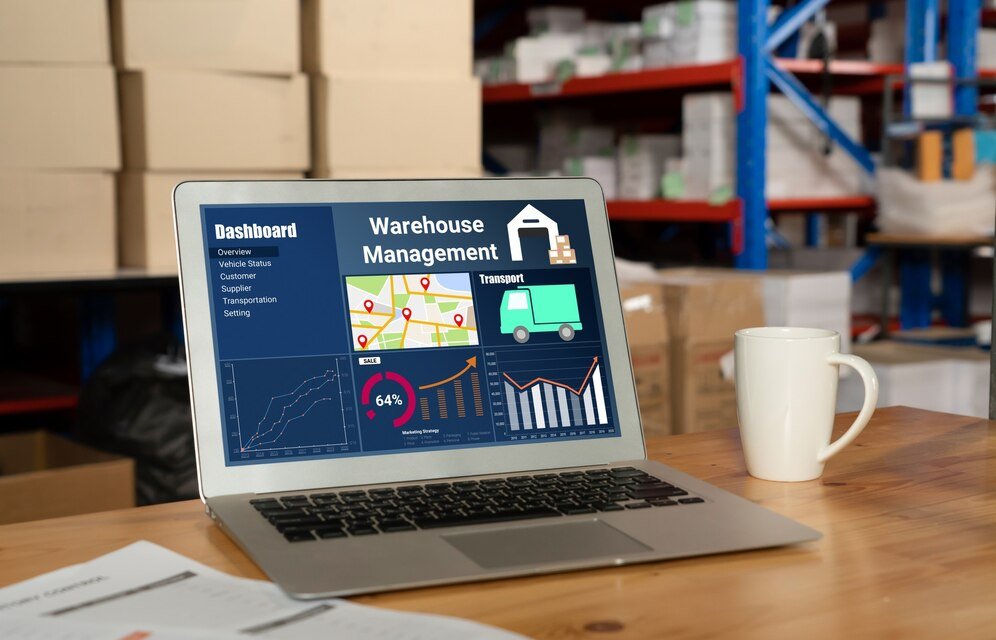Shop Management Software is a game-changer in the retail industry, providing comprehensive solutions for efficient business operations. From inventory control to customer relationship management, these software systems streamline processes, improve productivity, and enhance the overall shopping experience.
This article delves into the intricacies of shop management software, highlighting its benefits, key features, and how to choose the best solution for your business.
What is Shop Management Software?
Shop Management Software (SMS) is an integrated system designed to manage various aspects of retail operations. It encompasses a range of functionalities including inventory management, sales tracking, customer relationship management (CRM), and financial reporting. By automating routine tasks and centralizing data, SMS enables businesses to operate more efficiently and make informed decisions.
Key Benefits of Shop Management Software
1. Improved Inventory Management
Effective inventory management is crucial for retail success. SMS provides real-time tracking of stock levels, automates reordering processes, and reduces the risk of overstocking or stock outs. This ensures that popular products are always available, enhancing customer satisfaction and boosting sales.
2. Enhanced Customer Experience
SMS allows for the collection and analysis of customer data, enabling personalized marketing and improved customer service. Features such as loyalty programs, targeted promotions, and personalized recommendations foster customer loyalty and increase repeat business.
3. Streamlined Operations
By automating routine tasks such as billing, reporting, and employee scheduling, SMS reduces the administrative burden on staff. This leads to increased productivity, allowing employees to focus on more strategic tasks such as customer engagement and business development.
4. Better Financial Management
SMS provides comprehensive financial reporting tools that help businesses monitor sales, track expenses, and manage cash flow. This transparency into financial performance aids in budgeting and financial planning, ensuring the business remains profitable.
5. Data-Driven Decision Making
Access to real-time data and detailed analytics enables businesses to make informed decisions. Whether it’s adjusting pricing strategies, identifying best-selling products, or planning marketing campaigns, data-driven insights are invaluable for strategic planning.
Key Features of Shop Management Software
1. Inventory Management
- Real-Time Tracking: Monitor stock levels in real-time to avoid stockouts and overstocking.
- Automated Reordering: Set reorder points to automate purchasing processes.
- Product Categorization: Organize products into categories for easier management.
2. Sales and Billing
- Point of Sale (POS) Integration: Seamless integration with POS systems for quick and efficient sales processing.
- Billing Automation: Generate invoices and receipts automatically.
- Sales Reporting: Detailed sales reports for performance tracking.
3. Customer Relationship Management (CRM)
- Customer Database: Maintain detailed customer profiles for personalized service.
- Loyalty Programs: Implement and manage loyalty programs to encourage repeat business.
- Marketing Automation: Power email campaigns and rises.
4. Employee Management
- Scheduling: Create and manage employee schedules easily.
- Performance Tracking: Monitor employee performance and sales targets.
- Payroll Management: Simplify payroll processes.
5. Financial Management
- Expense Tracking: Monitor business expenses in real-time.
- Financial Reporting: Generate profit and loss statements, balance sheets, and cash flow reports.
- Tax Management: Shorten tax controls and filings.
Choosing the Right Shop Management Software
Selecting the right SMS for your business involves evaluating your specific needs and comparing different options. Here are some factors to consider:
1. Scalability
Select a software solution that can rise with your business. It should be capable of handling increased inventory, more customers, and additional locations as your business expands.
2. User-Friendliness
The software should have an intuitive interface that is easy for your staff to learn and use. Complex systems can lead to inefficiencies and errors.
3. Integration
Ensure the software can integrate with your existing systems such as POS, accounting software, and eCommerce platforms. Seamless integration is key to maintaining efficient operations.
4. Customer Support
Reliable customer support is essential. Choose a provider that offers comprehensive support services, including training, troubleshooting, and regular updates.
5. Cost
Consider the total cost of ownership, including upfront costs, subscription fees, and any additional charges for updates or support. Select a solution that deals with the best value for your cheap.
Top Shop Management Software Solutions
1. Light-speed Retail
Lightspeed Retail is a cloud-based solution that offers robust inventory management, sales tracking, and customer relationship features. Its intuitive interface and powerful reporting tools make it a popular choice among retailers.
2. Vend
Vend provides comprehensive POS and inventory management solutions with seamless integration to various e-commerce platforms. Its scalability and user-friendly design are ideal for businesses of all sizes.
3. Square for Retail
Square for Retail combines powerful POS features with advanced inventory management and CRM tools. Its ease of use and affordability make it an excellent option for small to medium-sized businesses.
4. Shopify POS
Shopify POS offers seamless integration with the Shopify eCommerce platform, making it perfect for businesses that operate both online and offline. It provides comprehensive inventory management and sales tracking features.
5. QuickBooks Point of Sale
QuickBooks POS is an excellent choice for businesses that require strong financial management features. It integrates seamlessly with QuickBooks accounting software, providing a holistic view of your business finances.
Implementing Shop Management Software
Successful application of SMS needs watchful planning and execution. Here are some steps to ensure a smooth transition:
1. Assess Your Needs
Identify your business requirements and goals. Consider factors such as inventory size, number of employees, and customer base.
2. Choose the Right Software
Choose the software that best fits your business based on your needs assessment. Consider trial periods or demos to evaluate functionality.
3. Train Your Staff
Ensure your staff is adequately trained to use the new system. Provide comprehensive training sessions and resources.
4. Migrate Data
Carefully plan the migration of existing data to the new system. Ensure accuracy and completeness to avoid disruptions.
5. Monitor and Optimize
After implementation, continuously monitor the system’s performance and gather feedback from staff. Make necessary adjustments to optimize usage and efficiency.
FAQs
1. What is Shop Management Software?
2. How does SMS improve inventory management?
3. What features should I look for in SMS?
4. How do I choose the right SMS for my business?
5. What are some top SMS solutions?
6. How do I implement SMS successfully?
Conclusion
Shop Management Software is an invaluable tool for modern retailers, providing the capabilities needed to streamline operations, improve customer satisfaction, and drive business growth. By selecting the right software and implementing it effectively, retailers can gain a competitive edge in the dynamic retail landscape.






